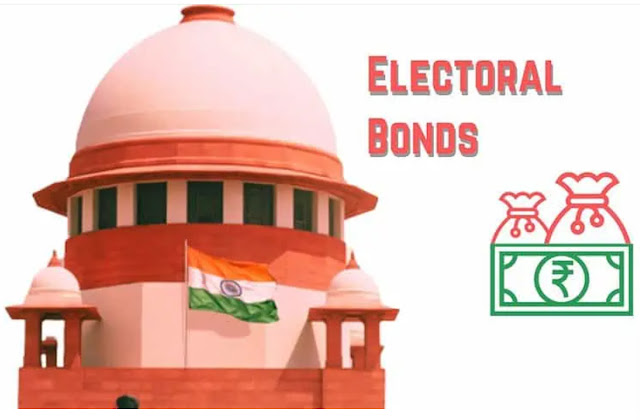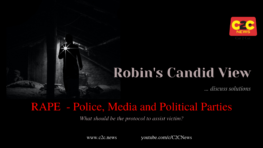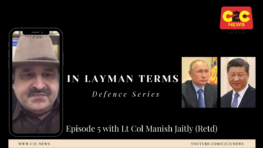
The latest media reports had a rather interesting headline. It spoke about the supreme court raising many a logical question about political funding and demanding that the list of donors be readily available for the court to review. Many have also raised questions about the so-called opacity of the electoral bonds and have pointed a finger at the current government on this.
Let’s step back and have a look at this issue of political funding from a larger perspective.
Is this something that started in 2014 as many educated folks would like us to believe or has it been in vogue ever since politics and elections started globally? For those who have followed politics especially in the Indian context, and involved as businessmen, professionals walking the corridors of power over the last 75 years, the truth is well known.
Cash was king. Bribery was rampant. Every corporate and businessman gave money to every political party in cash. This was a hugely lucrative business where one could convert cheque into cash and also act as couriers to ferry cash within parties, between corporates and parties etc. This was a hugely lucrative career and many folks have become rich riding this wave. Once their trust and service were established, they made this a professionally run system where different political parties, politicians, corporates used their services.
Such an activity requires the highest level of trust. A corporate especially one that was global or was a bit squeamish needed a reliable supply chain. How it worked was – a individual or private firm would be given a PO for unspecified services and payment made by cheque. The firm in turn handed over cash back to the corporate after deducting a small fee. With no GST, computerisation, PAN, Aadhar, etc etc this was the easiest of transactions. It was literally like going to bank and encashing a cheque. The key was TRUST.
Some firms and individuals who ran such business extended their service to even deliver the cash to the concerned persons or political parties. Even in the earlier days the amounts involved in political funding were significantly high. A payoff of Rs. 20 to 30 Lakhs was common while today it may be in Crores. This was usually in the form of Rs. 100 currencies till higher denominations came into play. In the 50’s the government of India introduced Rs. 1000, Rs. 5000 and Rs. 10,000 denominations and no prizes for guessing the purpose behind it. When you take a cash transaction of Rs. 30 lakhs it translated to 30,000 notes at one level or 300 at another level. Hindi films showed with a flourish the villains snapping open a briefcase filled with these bank notes. These agents ferried the cash in cars to deliver it say in Delhi from Bangalore. The airlines till recent times had an official rule that they could not question a passenger if he were to be found carrying a large amount of cash in a briefcase.
This TRUST was so strong across the whole chain that nobody dared to cheat the other even by one paisa. One small misstep, the person concerned would disappear from the eco-system. The corporate honcho taking a few lakhs from the cash conversion chap DID NOT count the money. He passed it on to whoever was next in line without counting the money. This chain would go on till in the end it reached the hands of the person who spent the money. That is the chap who would realise that he had been shortchanged if he saw a shortage. The message would travel backwards and sooner than later the culprit would be known and with that, he was cut off from the chain forever. The honesty and trust in corruption and bribery was and is so high that even the gods would be hard pressed to meet those standards.
None of these entrepreneurs openly flaunted their business credentials, did NOT dress ostentatiously, drove ramshackle looking cars, kept a low profile but were hugely rich and powerful. There were many such folks across India. The corporates, the businessmen, politicians, officers, the cash conversion, and courier folks – not one person ever wanted their name to be displayed openly. The discretion was so high that one could not even joke about it.
In short, political funding has always been opaque and this is a feature that is prevalent globally and nobody has ever been able to find an answer to this vexed question. My father would joke that behind every individual fortune there was a crime. Without politics nothing moved in India, not even a mouse could move house was the joke. Political funding was rampant and remains so. Every person who has worked in India in business or in positions of power over the last 40 years would be bluffing if they claimed that they haven’t been aware, involved in the corruption, bribery – whether big or small – depending upon their scale of business.
To claim the moral high ground today is a poor joke. Political parties and others who are demanding transparency in political funding must first publicly announce the “donations” they have made/ received directly/ indirectly on their own. Why wait for a court to give a ruling on that? Why expect a government to do what one is not willing to do? The problem with our moral grandstanding is that we want all rules, probity, honesty, ethics to be imposed on everybody except ourselves. What we do, is smart business, risk taking, entrepreneurship, doing things legally etc but when others do the same, we love to point fingers at their lack of moral standards.
I still recall Arvind Kejriwal and AAP screaming about transparent political funding, publishing list of donors and the media cheerleading him as the messiah. That died a quick death. Why did it die? It died because barring for the folks who donated a few hundred bucks – which would not even be enough to fill petrol in his Wagon R – the folks who donated big money would never donate even a paisa if they had to see their names publicly displayed on websites as a political donor.
Businessmen especially the smart ones, the big ones, hedge their bets in all directions. Invariably whichever party is in power gets a higher share of the moolah, but the opposition also gets donations. But the frailties of human nature are such that even if a politician is low level player, the moment he knows that a business has given more money to someone else compared to himself, the ego is hurt so much that he will invariably seek to extract his pound of flesh when he gets the chance. He will demand returns far more than what he felt was shortchanged to him when he gets to wield power. Every political party in power that takes any decision will mean some section of the nation benefits. Every decision cannot be such that 100% of the population benefits. If perchance one of those who gets a benefit has also donated to the party, it is easy to point a finger and accuse them of “corruption”.
For example, Infosys has been involved in about 200 Million USD worth of Government contracts in United Kingdom and the latest was in December 2022. Would you allege this is because the daughter of the Infosys founder is the wife of the Prime Minister of UK? Suddenly we are reading about various allegations against the PM of UK about his “connect” with Infosys? Did we read about these government orders to Infosys over the last many years with pride or with jaundiced eyes? What was a pride till now suddenly becomes cloudy since it is politically convenient to beat the PM of UK.
If the business success of a globally reputed company becomes a stick politically, can one imagine the size of the stick when there is a political donation involved? That is why no donor wants their names publicly shared and informed. Trying to take the moral high ground is both silly and impractical and anyone who would like to do so, needs to stand in front of a mirror and ask if they want their own donations and dealings with politicians made public? Folks will likely refuse to answer this question.
This is not to condone political funding and its attendant bribery and influence. This is to say that unless we bring in probity in our own public life where we are willing to be judged by the same high standards we demand of others, we have no right to point fingers at others. To me this is a subject that is still evolving. Every step will be incremental, and it may take years or decades before we reach a ideal situation.
Political funding becomes a necessity because we want every political party to talk to us, meet us, tell us what they want to do – run high decibel campaigns across various platforms. We as voters make all kinds of personal demands right through their tenure which involves expenditure that someone must fund. There is no free lunch anywhere.
However ridiculous the idea is, suppose we declare all political campaigning as “illegal” and say that like in school every government, political leader gets a report card each year based on certain metrics and these will be published across every media once a year. Before elections nobody is allowed to campaign, have posters, publicise anything on their own. The election commission comes out with a booklet that lists the promises of every candidate, their achievements and is distributed to all voters, all candidates get just one chance when they can address the voters across radio, TV, media etc. There is ZERO campaigning, public speeches etc and based on that voters need to decide. This activity will happen just once in 5 years. The rest of the time he spends working in office, no political speeches anywhere. 99% of the cost of a political party disappears.
Today this scheme of electoral bonds is being targeted not because it is somehow immoral since the system even if opaque still has a legal trail. A company seeking to donate politically needs to get a board resolution passed, pay by cheque, and buy the bond. Compared to the earlier practise of cash courier business this is a huge improvement even if imperfect. The cash couriers have been affected significantly and such folks are protesting vociferously.
Over the decades when we benefited from the system of cash donations, we didn’t feel the need to protest because cash offered anonymity, and nobody had access to any information – there was democracy in lack of information. With electoral bonds, suddenly there is information to judge where we stand in the pecking order and not having access to that information is what is galling, not that the system is opaque. Leveraging the courts to get access to that information about OTHERS is what the case is all about.
Getting access to the information of donors means that one can tell their political friends the names so that they in turn can target their knives suitably. All this couched in moral high flatulence.
Hell, hath no fury like a politician scorned for funding.
Author: Ravindra Vasisht Twitter: @rvasisht
Article republished with permission from Author.
Original Source:
Electoral Bonds & Funding (rvasisht.blogspot.com)








